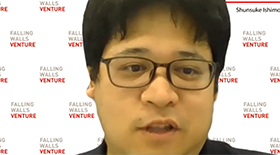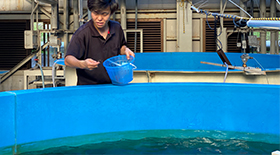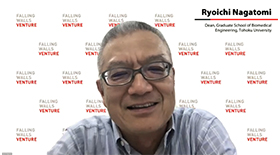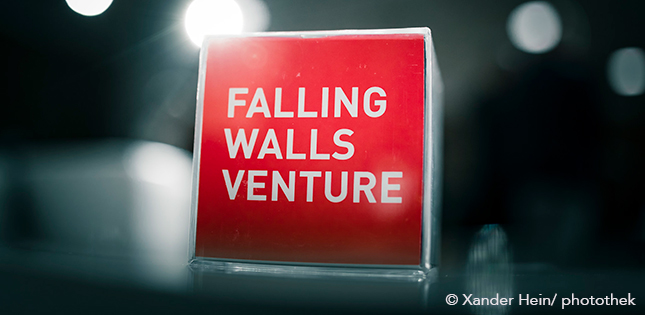On the heels of Falling Walls Lab Sendai - a platform for young researchers and their innovative ideas - comes Falling Walls Venture Qualifier Sendai, the turn of the young start-ups.
Hosted by Tohoku University, and held online for the first time due to the COVID-19 pandemic, the event serves as a qualifier for the main Falling Walls Venture, an international contest held annually in Berlin for science-based start-up companies, venture capitalists and strategic investors.

Naveed Syed, Head of Global Networks at the Falling Walls Foundation, gave an opening speech from Berlin. "It's important to empower those who have the drive and the passion to seek solutions, to tackle the challenges of our time," he said, adding that participants should "see this as a stepping stone that will move you forward."
This year, six Japanese start-ups participated in the Sendai qualifier, each getting five minutes to present a business pitch, before fielding questions from a panel of seven judges. The contestants were judged on their level of innovation, the scope of impact and commercial potential of their ideas, and the quality of their business plan and pitch.
Regional Fish Institute, Ltd., from Kyoto, represented by COO Shunsuke Ishimoto, won the competition for the presentation "Breaking the Wall of Limited Supply of Protein."

According to Ishimoto, the growing number of middle income people around the world, will cause a protein shortage before the end of this decade. Among the sources of protein currently available, meat from livestock has low production efficiency, and there remains psychological barriers to eating non-traditional alternatives like beans and insects. The best option, Ishimoto concluded, is marine protein from fish. "So a superfast breeding method is desired for aquaculture to be more productive," he said.

The solution proposed by Regional Fish Institute, Ltd, is high-speed breeding - technology to obtain a desired trait from a gene level approach - which Ishimoto says can develop a new breed in just two or three years.
The company has reportedly already succeeded in developing two new breeds using this technology - Tiger Puffer with fast growth capabilities and Sea Bream with increased filet.
The other five start-ups who participated were:
- NeU Corporation - Breaking the Wall of Visualizing Brain Activity in Daily Life
- FillerBank Limited - Breaking the Wall of Sustainable Cotton Utilization
- Enishia Inc. - Breaking the Wall of Medical Information
- SensChip Incorporated - Breaking the Wall of Small Amount of Detection
- REISense, Inc. - Breaking the Wall of Robotic Sensing

Speaking on behalf of the judges at the close of the event, chairman Ryoichi Nagatomi, Dean of the Graduate School of Biomedical Engineering at Tohoku University, praised the quality of the presentations and said that choosing a winner was "a really tough decision." He added that among those who didn't win were "several very promising ideas that were just too early in development."
Ishimoto and Regional Fish Institute, Ltd will move on to the Falling Walls Venture Final, hosted online from Berlin on November 8 - 9. They, along with other winners of international qualifiers, will be vying for the title "Falling Walls Science Start-Up Breakthrough of the Year 2020."
Contact:
Falling Walls Venture Qualifier Sendai
Tohoku University Industry-University Cooperation Division
Tel: +81-22-795-5281
Email: fwvqs grp.tohoku.ac.jp
grp.tohoku.ac.jp


